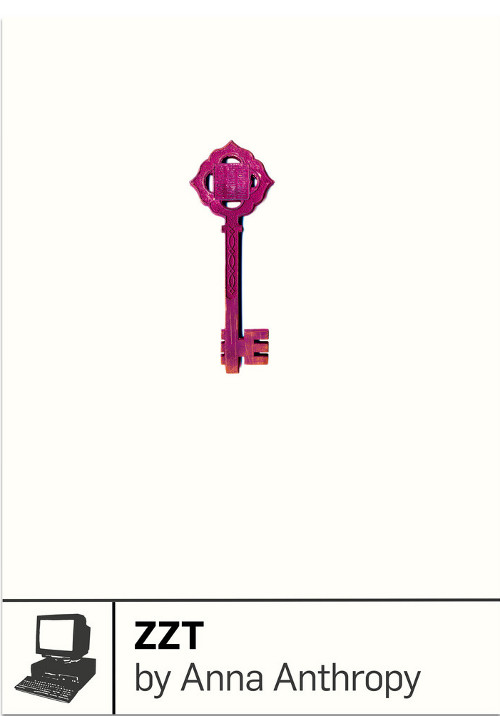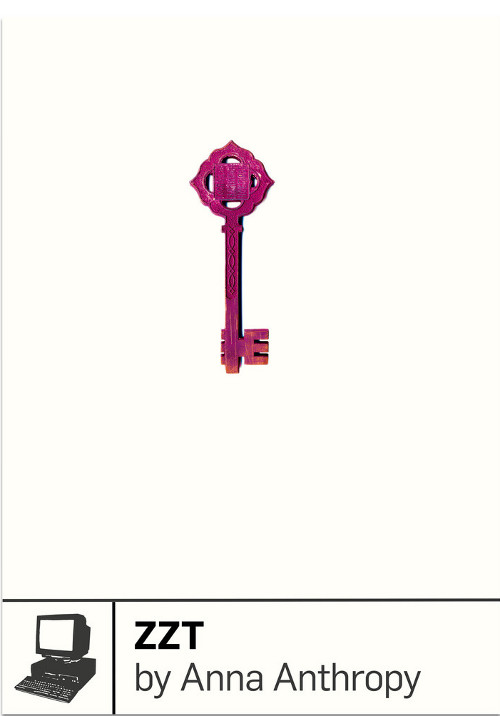
Growing up, I was obsessed with starting clubs. I was also terrible at getting people to actually join them. My Environment Club in fourth grade consists of a journal list of suggested members and possible activities, all neighborhood creek-related. No one on the list wanted to join. No club activities ever occurred.
In junior high, I started an online club for fans of Brian Jacque’s Redwall book series for children. When I shut the website down in late high school, it had one hundred thirty-four members. In that online life, I was an otter warrior, not a weirdly dressed book nerd. Confident. Strong. An outsider who became an insider through courage and skill, and for however brief a moment, one hundred thirty-four people wanted to come along.
Anna Anthropy’s ZZT from Boss Fight Books reveals a community around the PC game by the same title. Author and ZZT player Jeanne Thornton calls this community a “safe-yet-dangerous online space” in an interview in the book. The online community is dangerous in its mutability, its secrets kept and revealed, its power. It is safe in its anonymity and in its existence so far outside and beyond the physical body, its limitations and frailties. But before the ZZT community could exist, there had to be the ZZT game.
ZZT the book is a museum, with Anthropy as our curator and guide revealing facets of the game as we go along. She introduces the reader to an obscure cult game that was created in 1991 and could be mail-ordered from the designer Tim Sweeney’s parents up until 2013. She guides us through the game’s origins and its nuts and bolts, of which there are two hundred fifty-six. But she’s most eager to demonstrate the magic of ZZT.
These game worlds were limited by the capabilities of old-school MS-DOS—but unlimited in all the ways that mattered. ZZT came not only with the games Sweeney wrote, but also with a World Editor. ZZT players can build and share original games with impressive flexibility and ingenuity, all told in the same two hundred fifty-six-letter language of commands, simple graphics, and imagination.
“Say it’s a bright yellow ampersand. It could be anything. It could be a banana. It could be a pouch of gems. It could be a magic whip. It could kill you instantly,” Anthropy writes. This sense of discovery, danger, and surprise permeates Anthropy’s tour through the world of ZZT, beginning as a pre-teen in the flea market and ending as the adult author, nostalgically revisiting old ZZT games in her childhood home.
Alongside the user-created ZZT games are the forums, where creators meet, share, critique, rejoice, argue. The games can be silly and strange, with ZZT original titles such as Edible Vomit, Kudzu, and Mission: Enigma. Anthropy describes them as “[a]rtifacts of a time when we were terrible and everything Mattered,” an incredibly accurate definition of how I view my own adolescence. Anthropy’s interviews with game enthusiasts also present the game and its community as a unique support system for those going through this most terrible, most important of times.
Anthropy links the game itself to identity exploration, including her own transgender journey. She intelligently, movingly, lets the metaphor of the game illuminate dimensions of her transition. The game offers a world that can be tailored and adapted with a keystroke, where the person behind the keyboard is and can be anyone, and virtual identities can help give a young person the courage to assume their true identity. Anthropy presents this freewheeling programming as a way to examine, understand, and shape both the virtual world and ourselves. She makes an impassioned, persuasive argument for why this power should be more widely available and used.
Say you are a person, the beginner programming keys to ZZT jangling in your fingers. You can be anything. You can be a storyteller. You can be a problem-solver. You can be a listener. You can be an artist. You can be a hero. You can be a rebel. You can be courageous, inventive, heard. You can change, grow, evolve, connect. Anthropy’s ZZT invites the reader into a world where anything is possible.
ZZT, by Anna Anthropy. Los Angeles, California: Boss Fight Books, June 2014. 142 pages. $14.95, paper.
Kelsie Hahn’s fiction chapbook Responsibility is available from Lit House Press. Her reviews have also appeared in Pank, The Collagist, Puerto del Sol, and Necessary Fiction. She holds an MFA in fiction from New Mexico State University and lives in Houston, Texas. More at http://www.kelsiehahn.com.
Check out HFR’s book catalog, publicity list, submission manager, and buy merch from our Spring store. Follow us on Instagram and YouTube. Disclosure: HFR is an affiliate of Bookshop.org and we will earn a commission if you click through and make a purchase. Sales from Bookshop.org help support independent bookstores and small presses.


Leave a comment